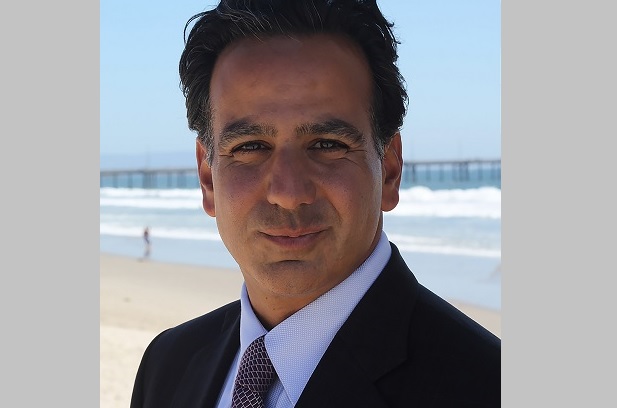 Jim Scheinberg, founder and chief investment officer, North Pier Search Consulting
Jim Scheinberg, founder and chief investment officer, North Pier Search Consulting
Investors of all kinds are frustrated, dismayed, even afraid during this volatile time caused by the coronavirus pandemic. It's not any easier for sponsors, advisors, and recordkeepers dealing with multiple challenges on every front. We caught up with Jim Scheinberg, founder and chief investment officer of North Pier Search Consulting, which offers search and evaluation services to institutional investors. With over 30 years of industry experience and having worked with some of the largest institutional investors in the industry, Jim offers perspectives on how investors, including institutional investors, are navigating these turbulent times, as well as what advisors and sponsors can do to help participants. See more about him at the end of the Q&A.
BenefitsPRO: How are institutional investors navigating the market during this volatile time?
Jim Scheinberg: Most are staying reliant on their investment policies. Though the speed of the onslaught of the market selloff was faster than most were prepared for, institutions have mostly built their portfolios with the expectation that something of this magnitude could hit.
The only thing that has changed here is that rebalancing has to happen. The question is how and when? With this type of volatility and with liquidity in fixed income thin, this is a challenge.
Are you seeing any change in behavior from, say, last month or last week?
Not so much with the institutions. The broader market saw quite a bit of shift from mid-February until now. Until late February, markets were calm. A couple of weeks ago there was panic selling at every turn. bids were evaporated and the bottom dropped out, not just from stock but in a lot of credit exposed debt instruments.
What are some big no-no's during this volatile time of coronavirus-caused uncertainty?
Don't try to be a hero and call a bottom. This is good advice during a normal correction. During something as fast-moving and unknowable as the trajectory and damage of the COVID-19 virus, there is no telling when the recovery will start in risk assets, and what that will look like.
What should retirement plan professionals be doing?
Check their liquidity needs. Most organizations should have had enough built-in to their policies. Most of the OCIOs we are speaking with say that much of their communication with their clients right now is about keeping them calm and exercising patience.
If a company's liquidity needs haven't changed, then stick to their policies. If they have, however, like some health systems may be experiencing due to capital drawdowns more than they would have expected, then liquidity might need to be raised.
How are institutional assets reacting to current market news?
Most asset pools are down more than would have been anticipated. Not much besides cash and long-term government bonds have dampened the blow. Not only were most risk assets sold off indiscriminately, but so were typical safe havens like gold.
Even government bonds have not acted predictably. The 10-year Treasury saw its yield decline to less than 40 basis points, only to see yields shoot back up nearly a full percentage point the following week, at the same time stocks were declining some days. Without benefits from diversification, it was just a question of how bad it was for each one, not which assets were softening the blow. Declines are heavy for most asset owners
Is threat of virus-caused recession a factor?
Enormous. There is no question that we will see a recession, by classic or practical terms. Q1 will be a negative print, despite a decent January and February. Q2 will see the worst of the declines in GDP, however. The real question is, how quickly will the economy bounce back. Of course, the speed in which the virus is arrested will determine that to some extent. Once it is subdued, many lost jobs in food service and hospitality will come back quickly. People will be eager to go out and enjoy their social lives again.
Is there anything we can learn from the past to apply to now?
Yes and no. Yes, because at times like this, markets always overreact. At some point, things will be too cheap and there will be a meaningful recovery in risk-assets.
No, because, we've never dealt with something like this that suddenly stopped an economy cold and with no way presently of predicting how long it will last. We simply don't yet know whether it will be weeks, months or quarters until it is safe to go back to our normal lives, which will be the largest catalysis to the economy rebounding. This time, it really is different. The question is, how different and for how long?
What should employer sponsors of retirement plans be doing? Advisors? Participants?
Sponsors should be making sure that their participants are getting communications from their recordkeepers during the crisis. They should know what resources are available to them. Calming but realistic education is important right now for plan participants. They should know about loan options and hardship withdrawals, especially if a company is planning layoffs or furloughs. Advisors should be proactive in leading this discussion.
Participants should not overreact. Even if they "get out" before the worst is realized, these same people seldom get back in until the recovery is mostly over. Check their asset allocation to make sure that they made sense when they set them. If they are in target-date funds, as so many are, there may not be much to do. If not, if their plan allows for automatic rebalancing, consider turning it on, or rebalance a little bit here and there along the way. Also, consider increasing contributions if they can. That will help increase plan balances as well as buy into lower-valued investments.
Any other tips/advice?
Stay engaged. Don't bury your head in the sand, but don't overreact either. Communicate with your employees, your advisors your peers. Don't go it alone. We are all in the same boat, more or less.
These days seem like weeks or months. Sooner or later, time will slow back down again and there will be time for sane rational thought and prudent action.
Jim Scheinberg is the founder and chief investment officer of North Pier Consulting. He achieved the Certified Investment Management Analyst (CIMA) designation in 2001 from The Investment Management Consultants Association (IMCA) in conjunction with the Wharton School of Business of the University of Pennsylvania. He is a published author, a frequently quoted resource to journalists, a regular speaker at industry conferences, and guest on finance podcasts. Jim also regularly serves as a consulting expert for U.S. government regulatory agencies and as an expert witness for ERISA litigation. He began his career in venture capital in 1990 moving to general securities with Smith Barney Harris Upham in 1992. He joined Oppenheimer & Co., Inc. in 1994 as an Associate in the Oppenheimer Consulting Group, the firm's institutional investment management consulting department, where he worked with institutional fiduciary clients. In 2001, Jim founded what would become the Corporate Services Group of Oppenheimer Co., Inc. (CSG), where he eventually held the position of Director and Senior Vice President. In 2008, Jim and key members of CSG founded North Pier Consulting.
© 2025 ALM Global, LLC, All Rights Reserved. Request academic re-use from www.copyright.com. All other uses, submit a request to [email protected]. For more information visit Asset & Logo Licensing.








